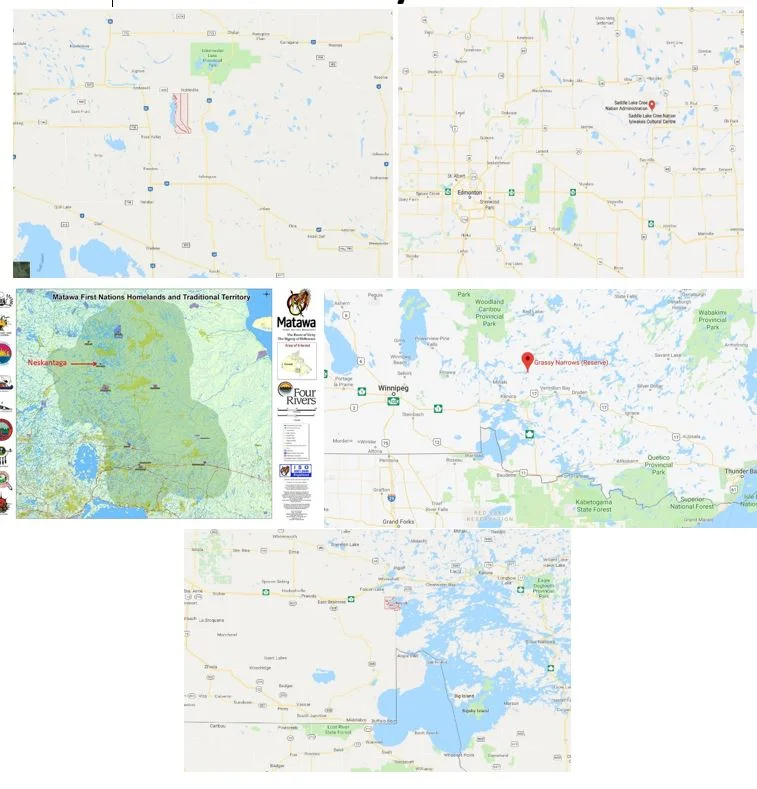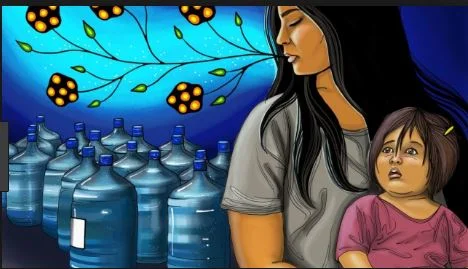“Water finds significance in the lives of First Nations people on personal, community, clan, national, and spiritual levels. Water is understood as a living force which must be protected and nurtured; it is not a commodity to be bought and sold.” - Unknown
All around Turtle Island (North America), the Medicine Wheel has been used as a teaching tool for many Indigenous Nations. Medicine Wheels consist of many different aspects that connect humans and all living things to the Earth.
Grades 6-9 Lesson 2: What Is Water?
“I think water is probably an issue where we (Aboriginal community and scientific community) can find common ground for discussion…it is something we all can stand behind.” – Dr. Alexander Zehnder, Scientific Director – Water Resources – Alberta Innovates
Water is a molecule composed of two hydrogen atoms and one oxygen atom. Water can be in three states: solid, liquid and gas. Many contaminants are often found in water
Grades 6-9 Lesson 3: Five Community Water Tales
“Tainted water and broken systems on Ontario’s First Nations reserves are jeopardizing health, burdening parents and caregivers, and exacerbating problems on reserves. First Nations people have the same human rights to adequate water and sanitation as all Canadians, but in practice cannot access them.” – Amanda Klasing, Senior Researcher, Women’s Rights Division, Human Rights Watch
Grades 6-9 Lesson 4: Current First Nations Water Issues
“I think once we understand each other a bit more clearly, we can tell the rest of the people, this is what’s happening to our water and how to take care of it – because it’s taken care of us up till now.” – Violet Poitras, Nakota/Cree Elder, Paul First Nation
In 2015, Justin Trudeau campaigned on a promise to end all long-term drinking water advisories by March 2021.
Grades 6-9 Lesson 5: Traditional Knowledge and Traditional Ecological Knowledge
Traditional knowledge is often referred to as Indigenous knowledge and local knowledge. It is knowledge that is handed down through generations about life experiences. Traditional knowledge includes knowledge about the land, the people, the creator, and other things like traditional practices such as ceremonies, religious practices such as prayer, and teachings about life.





